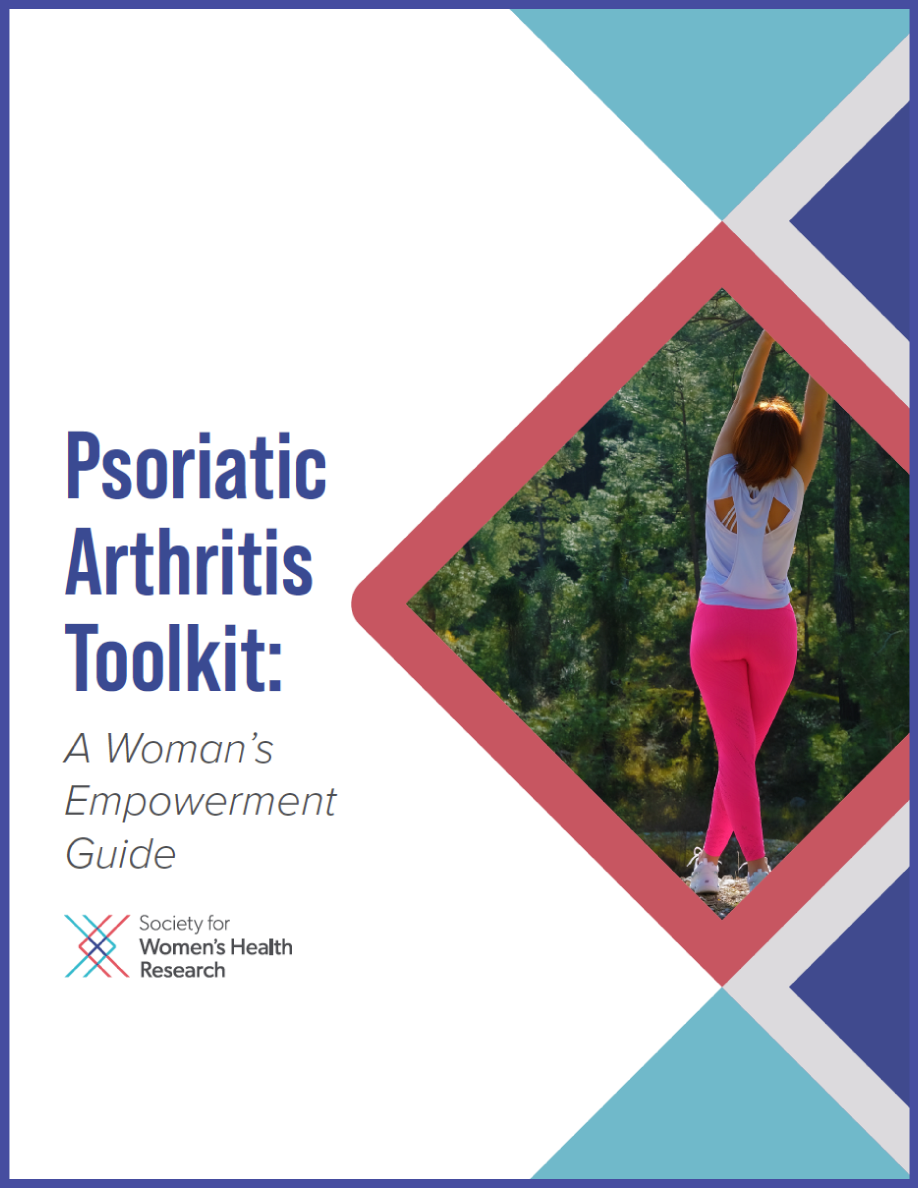Psoriatic arthritis (PsA) is an immune-mediated inflammatory disease (IMID) that causes inflammation in the joints, resulting in stiffness and pain. PsA can develop at any age, but it is most commonly identified between the ages of 30 and 50, and often occurs in individuals with psoriasis – another IMID that can cause inflammation and overproduction of skin cells, skin discoloration, and/or rashes.
The Society for Women’s Health Research’s Psoriatic Arthritis Toolkit: A Woman’s Empowerment Guide was created to support women living with PsA by providing tips and strategies to address diagnosis, treatment, care coverage, and everyday wellness.
PsA occurs equally in women and men, but women report more severe symptoms of fatigue, widespread pain, and difficulty achieving remission.
Additionally, some health conditions that often occur alongside PsA and disproportionately affect women include: cardiovascular disease, depression, fibromyalgia, inflammatory bowel disease, and osteoporosis.
Download Toolkit








